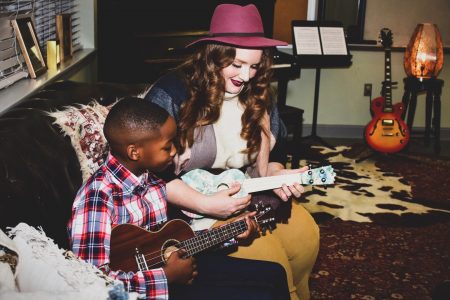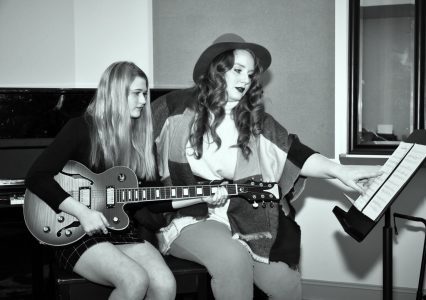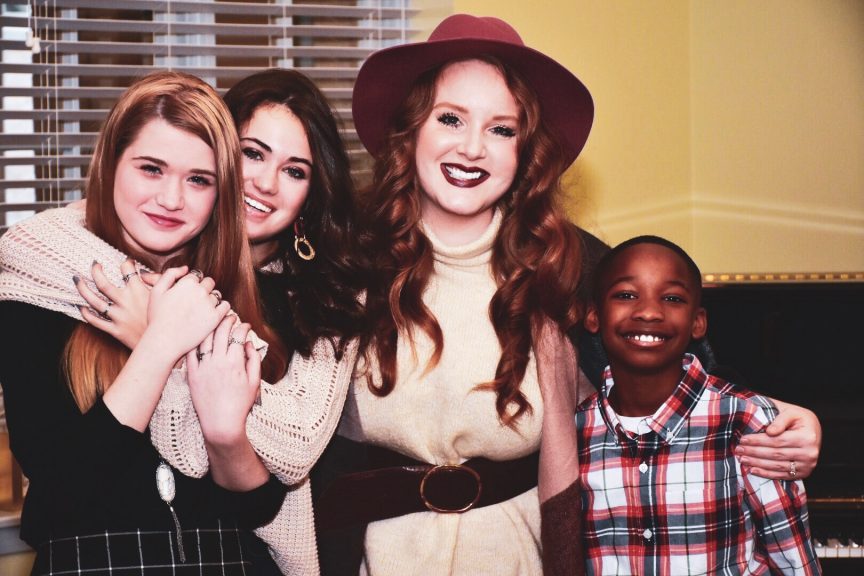Written by Marcie Ellen Duplantis
What if I told you there is one activity that can help your child to make sense of the world around them? An activity that can teach them how to self-regulate their emotions, help to learn languages, solve complex problems, increase memory, and help their little brains to be happier and healthier in later life? What if this activity was actually enjoyable for everyone involved?
Now, I know you are expecting me to reveal a new type of super food, a special pill, or an exercise regime, but this activity is actually as old as our culture and society. The activity is MUSIC EDUCATION! In a world where technology is rapidly changing and children long to connect with those around them, they often find themselves with a limited vocabulary. Music offers children an outlet for expression and emotional development. It helps to bridge the gap of communication about how they are feeling on the inside to their outside world.
Right here and now, I’d like to debunk two myths that are holding this younger generation back from their full potential:
To play music you must be “smart.”
To play music you must be “talented.”


Decades of research show, through randomized studies, that music education impacts all of those who partake in it, not just the gifted, not just the rich, not just the talented, but ALL. Music is something that almost every human on the planet enjoys in some way, every single day. We’re all born musical, it is simply experiences and opportunities that shape our minds and abilities.
Music education has been found to be most beneficial before age 9 but is not limited to that. Music engages three areas of the brain at once: motor, visual, and auditory. It is the equivalent of a full body workout for the brain! I hear you asking, “What does this mean for me and my child?” Well, that’s what I am here to tell you! On average, a child who has formal musical training, this is defined as a weekly lesson with an expert at a minimum of 30 minutes, has a higher IQ by 20 percent versus children who are not involved in musical activities.
Now, let’s talk more about what happens in the brain when engaged in music. Recent studies have shown that neuroscientists have observed children and adults performing various activities under an FMRI machine. There, they could watch how the brain functioned. During these activities, researchers found that when performing arithmetic, one side of the brain lit up on their monitor, and when reading or using language, another part lit up. But, when the individual listened to MUSIC it was like fireworks went off on the machine! Multiple parts of the brain were firing at the same time. These scientists had never seen anything quite like it before! They had just proven that music engages more parts of the brain, at one time, than any other activity! Personal experiences have taught me that children with learning disabilities who are also exposed to music have greater ease in bridging their learning deficiencies because of how it activates the brain.
Long before I became a professional musician or a teacher, I used to observe my peers whom I performed musical activities with, and would wonder, “How are they good at EVERYTHING they do (grades, sports, time-management)?” Now, I know it is because they had a higher level of cognitive function. Literally, their brains were wired to be more efficient! While most of them did not go on to be professional musicians, the careers they did choose were incredibly diverse and to this day, they are extremely successful. Music teaches us to be comfortable in the discomfort. It teaches how to cope with challenges, one step at a time, and it offers the gratifying experience of seeing all the baby steps come together to produce a grand dance!






Marcie Ellen Duplantis, M.A.T. Music Education
marcieellenstudio@gmail.com
Marcie Ellen teaches voice, piano, guitar, and ukulele from St. Mark’s Cathedral in Shreveport. For more information on private lesson, please visit marcieellen.com or contact at marcieellenstudio@gmail.com – for more info on Marcie Ellen’s music, you can find her on iTunes, Spotify, Amazon Music, GooglePlay, and Youtube @marcieellenmusic








